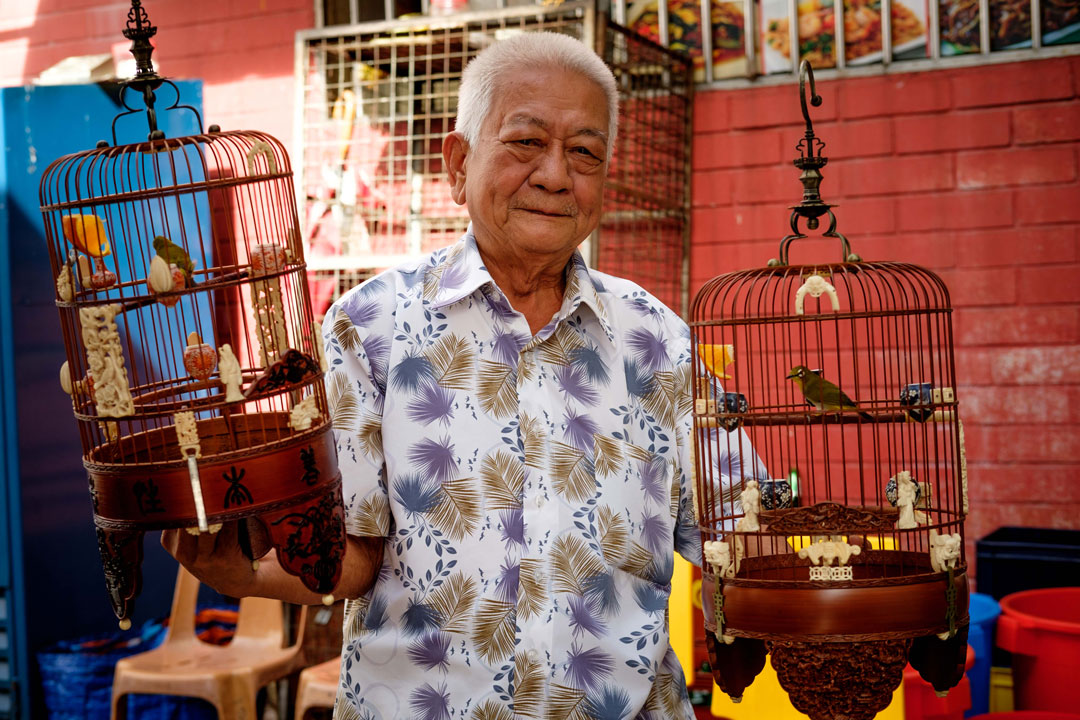We’ve all heard of cat ladies: the stereotypical, eccentric, unkempt woman hoarding an inordinate number of cats in her large brown coat (thank you Simpsons) or cluttered HDB flat.
But have you heard of the bird uncle?
Typically, he’s a middle aged man who wanders the heartlands of Singapore, often toting dome shaped bird cages covered in colourful batik cloths. Maybe you’ve seen the uncle who lives nearby, the one who owns four to five singing birds, all in their proudly hanging homes.
Quite literally, if you live in the vicinity of the legally demarcated small squares of space where these male hobbyists spend their free time, you would have heard them.
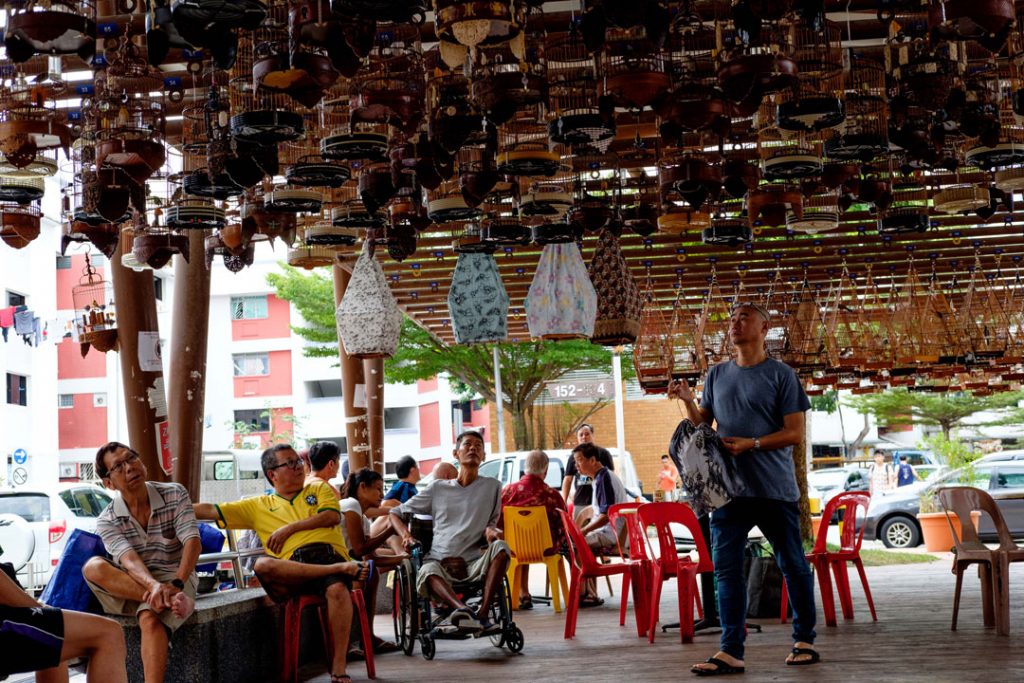
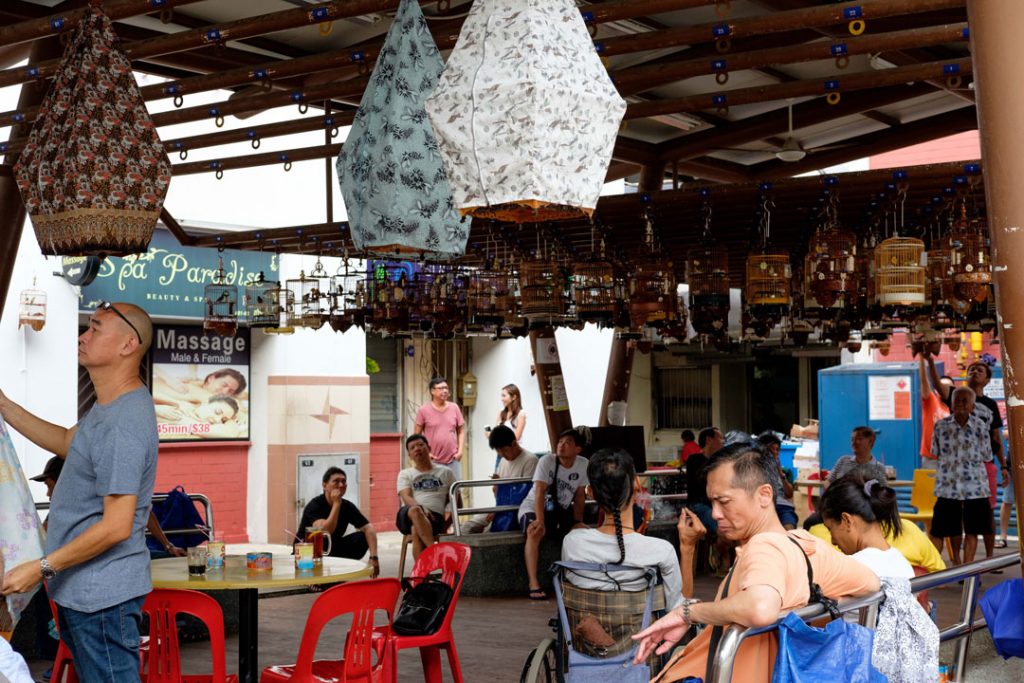
It’s in Serangoon, near block 151 that I stake out one such area, tucked away at the back of a kopitiam bordered by the carpark, rubbish chutes, exhaust pipes, and a bin center. This bird singing corner in particular can’t help but look like it was added as an afterthought.
When one approaches one of these areas, experiencing an immediate sensory overload is quite normal. As a deafening symphony of bird-singing fills your ears, you begin to spot rows upon rows of almost homogeneous bird cages, each housing a restless matah putih (oriental white-eye). They uniformly hang on designated hooks, differentiated only by intricate ivory ornaments and water-cup colours.
Instead of the odour of bird poop that one might expect, the unmistakable smell of kopi wafting over from almost every uncle’s hands is what hangs heavy in the air.
While everyone understands the phenomenon of cat ladies, I can’t help but wonder, why birds?
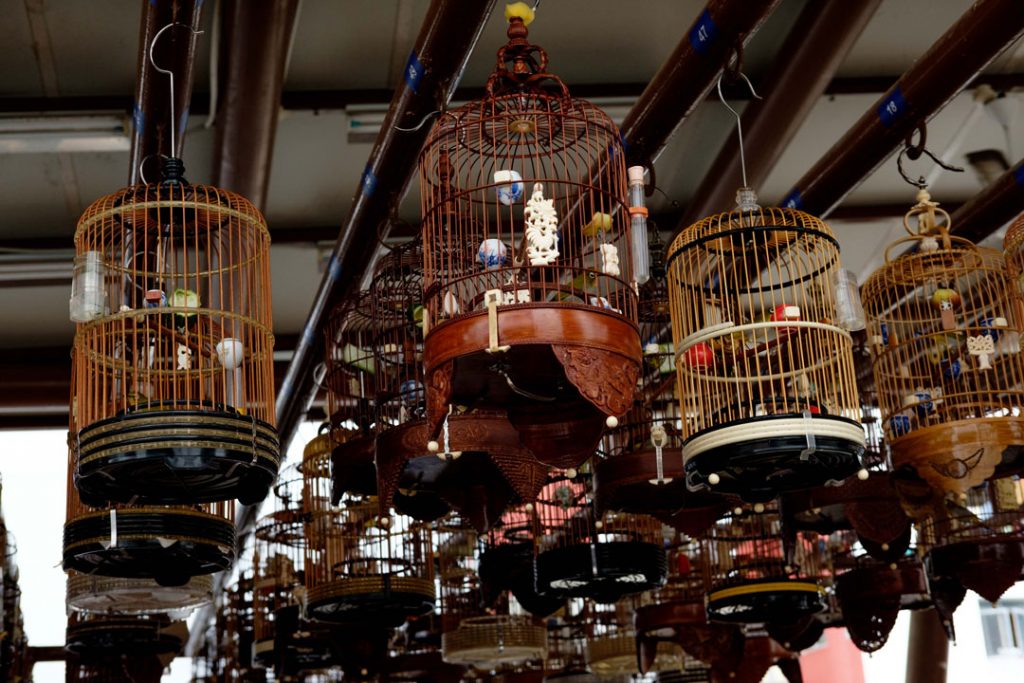
Uncle Ong, a mid-70s retired bus driver who adopted this hobby 40 years ago, brings two of his five birds and boards the bus from his HDB flat in Sengkang to make the journey to Serangoon weekly.
He tells me excitedly, “Aiyah, you won’t understand one lah. If you don’t own birds you won’t understand one. Maybe is because kampong, maybe because sometimes they sing nice and when we listen, it’s very peaceful. Also because it’s very fun, and we just sit here, drink our kopi our beer, and talk to each other while they sing. Not fun meh?”
It sounds just like any other passion; unless you’re into it, it can be hard to get. These bird hobbyists treat their pets with care, and know the nuances of each breed by eye.
“We have experience. We can tell when a bird can sing before buying it. Look at how the bird stands, what colour their feet are, and if their eyes are clear and other little details no one else knows,” another uncle adds.
“It takes experience,” an uncle in his mid 40s chimes in, turning around in his seat after overhearing my question to Uncle Ong.
Experience comes with time and effort, and it’s clear these uncles aren’t short on either. They mention that it doesn’t take them much hard work, that these birds are very low maintenance, only needing the occasional feeding. What they get in return appears to be so much more: friends, competition trophies, and a sense of peace and tranquility.
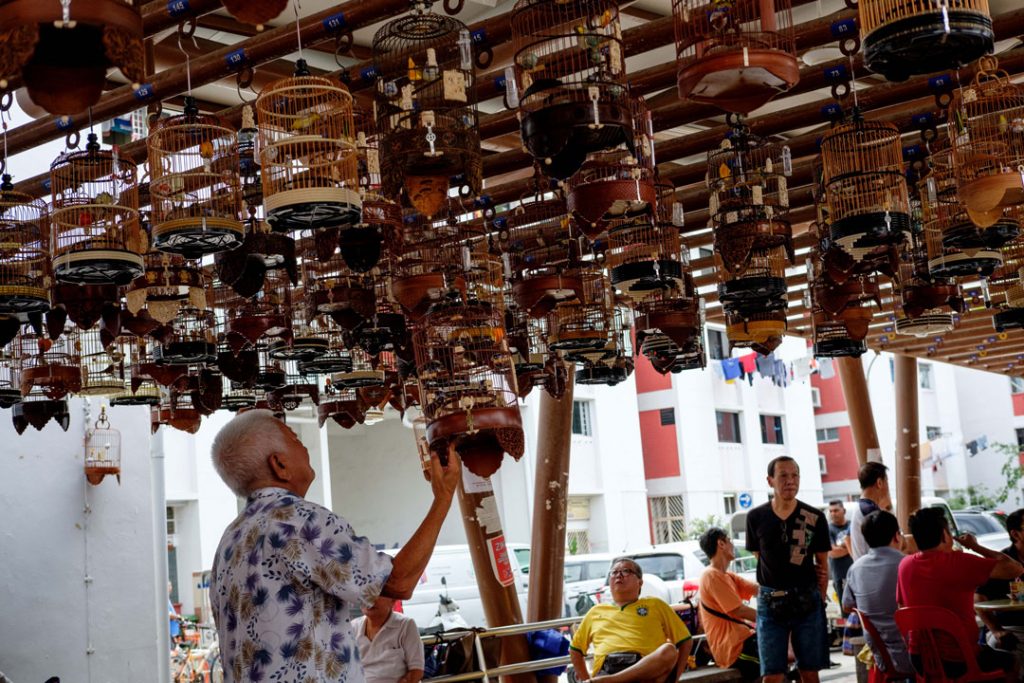
With everything they say, their words seem to bask in the glow of pride that comes with belonging to an exclusive club and having a unique hobby. I hear “experience” and “passion” countless times.
Uncle Ong tells me that the common hobby and love for birds is probably the only thing that brings them together. It’s like a community; a society of their own. And as with every society, this isn’t free from the inevitable: politics.
Indignantly, Uncle Ong tells of bird singing competitions hosted by bird aficionados where people submit their most prized singing bird to sing in front of a panel of judges, in hopes of clinching a trophy (and bragging rights). He grumbles about occasions where judges are treated to “lim kopi”, an euphemism for basically being paid up to a couple of thousand dollars “under the table” to qualify a bird that is undeserving.
Others echo his sentiments passionately, “Yeah, you know, it’s very unfair. Sometimes the bird clearly sleeping, and not even singing, but somehow they pass to the final round.”
Looking up at the priceless ivory ornaments embellishing rosewood cages and antique blue-jade cups imported from China, it’s clear that to these uncles, this hobby means serious business.
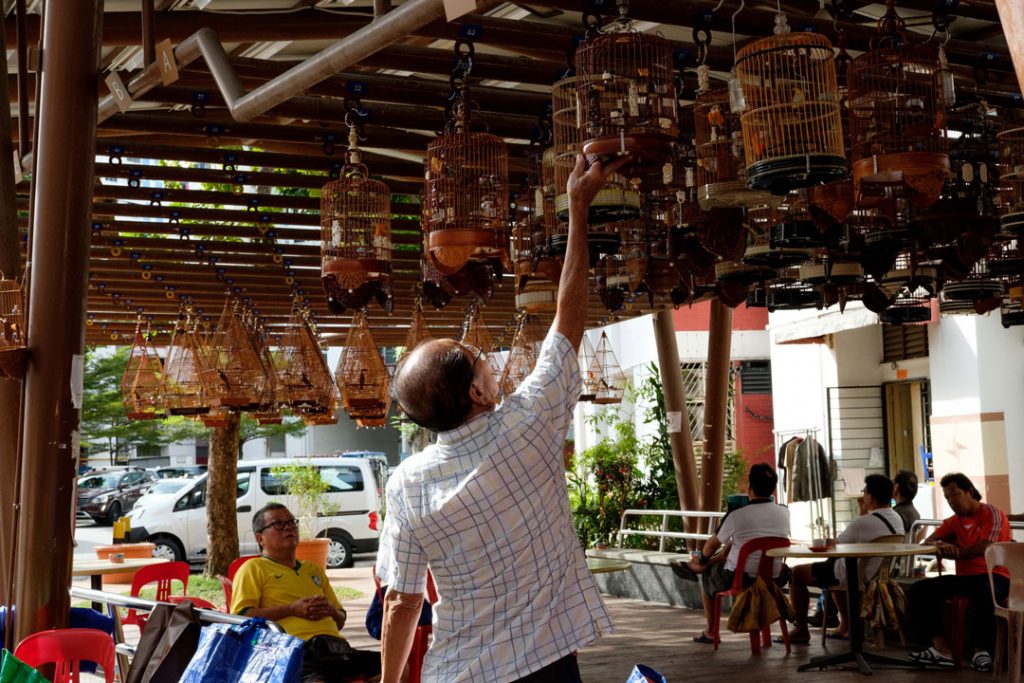
Despite the uncles sweepingly attributing their hobby to simply “drinking kopi with friends”, it’s obvious that the allure lies also in being able to just sit and listen, calmly and serenely spending weekends following routines. Akin to painting, knitting, or pottery, the therapeutic nature of this hobby transcends any need for a scientific breakdown of why.
After all, most of these uncles around own 4-8 of these birds, taking the effort to ferry them to and fro between bird hanging areas and their cars. The less transport-mobile uncles simply bring as many as they can carry to board public transport.
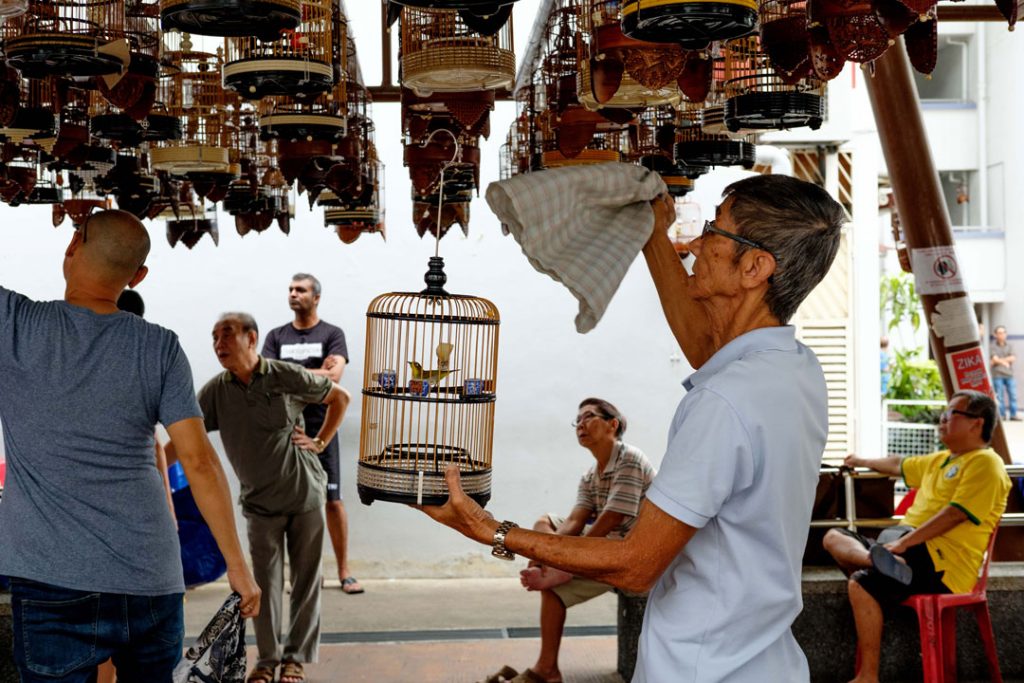
“He said, cannot bring birds. I tell him not to talk nonsense with me. I’ve owned these birds for 40 years and I used to drive the bus for SBS you know? So I called Wan Bao and made sure they come down. I want everybody to know. We are allowed to carry birds on the bus. The gahmen say if I cover the birds up, I can board the bus.”
Along with the copious amounts of money, time and attention poured into this hobby, new regulations have also contributed to a sense that the life is being gradually smothered out of this hobby. As such, exasperation at small indignities has become common.
“A bird used to cost nothing. All we had to pay with was the running around to catch them in the kampong. Then gradually they cost about $40-$50 a bird. Now these birds cost above a $100,” he laments.
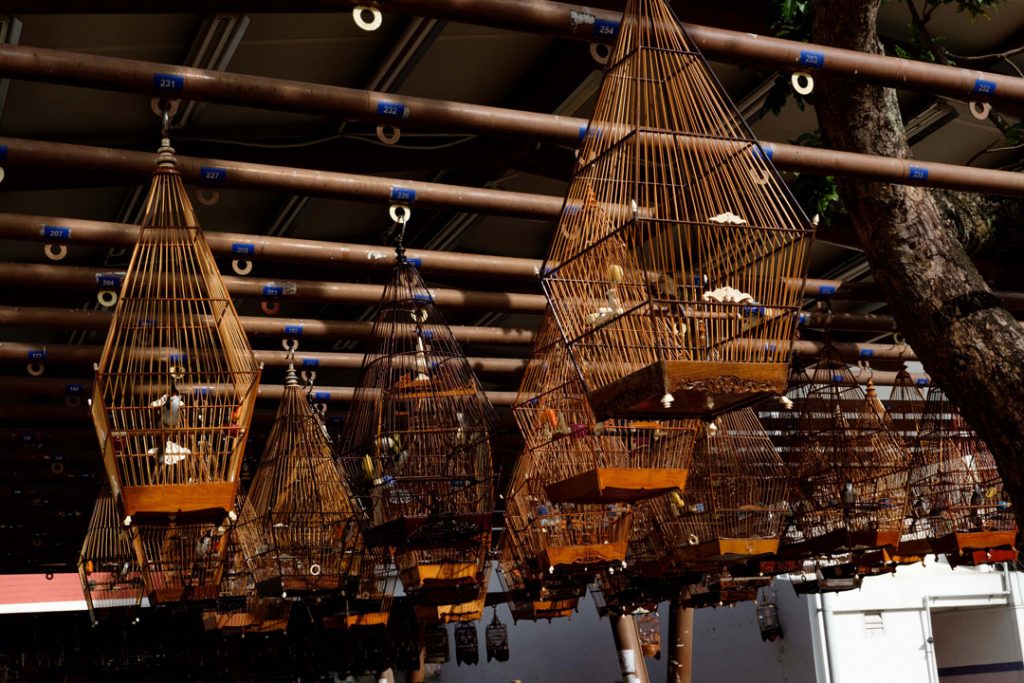
“The government is restricting the import of these birds,” one uncle tells me, his voice laced with both disdain and resignation.
“It’s affecting the prices and availability of the birds. Just that day, a primary school boy who loves these birds, told us he broke his piggy bank to pay $150 for his own bird. He used his everyday pocket money and saved enough for just one bird.”
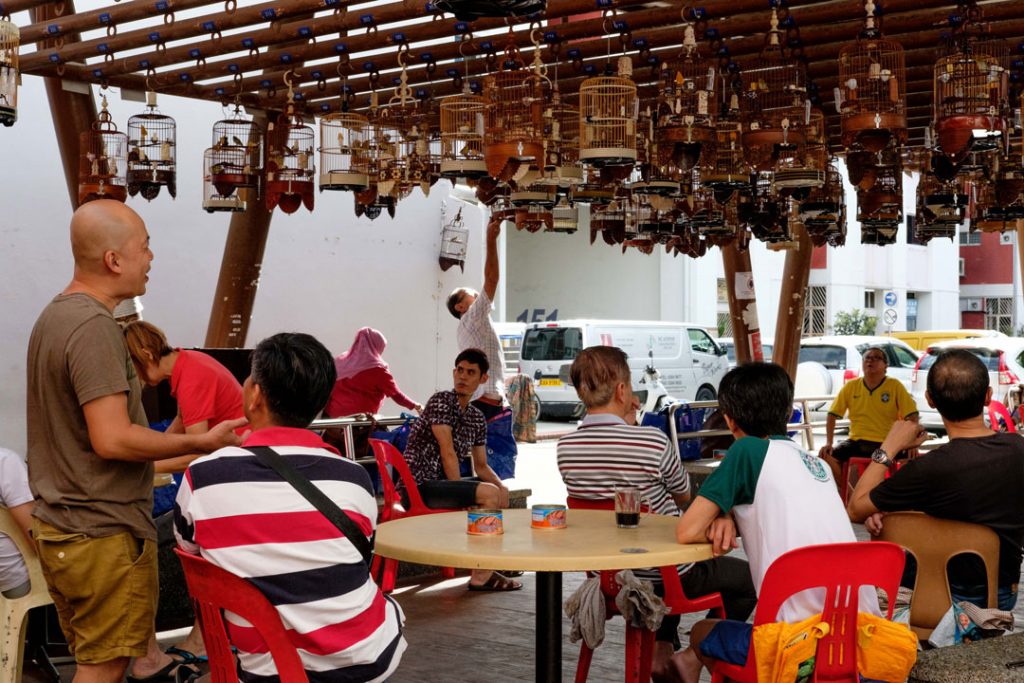
“No. I give it 5 or so years. Not because young people don’t collect birds you know? You see, people are interested to start this hobby,” Uncle Ong says, pointing to the middle-aged president of the singing birds community.
“Primary school kids also buy them. People like this hobby. It’s fun and it takes skill to raise good singing birds.
“It’s because of the government. They make it difficult to import and they close down bird singing corners. Everyone finds it expensive so no one cares anymore. People also complain that it’s inhumane for the birds to be in a cage their entire lives or they find it noisy and annoying. Even my condo neighbour sneakily sprays Baygon at my balcony to kill my birds.”
With the threat of bird-flu and other avian diseases, AVA has clamped down very strictly on the import of birds. It’s gotten to a point where once bustling bird shops are closing down gradually.
Bird shops now have to import birds from far-flung places like Europe, giving rise to the cost of these songbirds.
Naturally, with fewer people gravitating towards the hobby, public understanding and interest for songbirds eventually translates into indifference and intolerance.
Uncle Ong adds, not without a note of drama and finality in his voice: “They don’t need to ban us from rearing birds, but they’re cutting off our future.”
It seems like while this hobby might not be dying off so soon, it most definitely has an expiry date.

